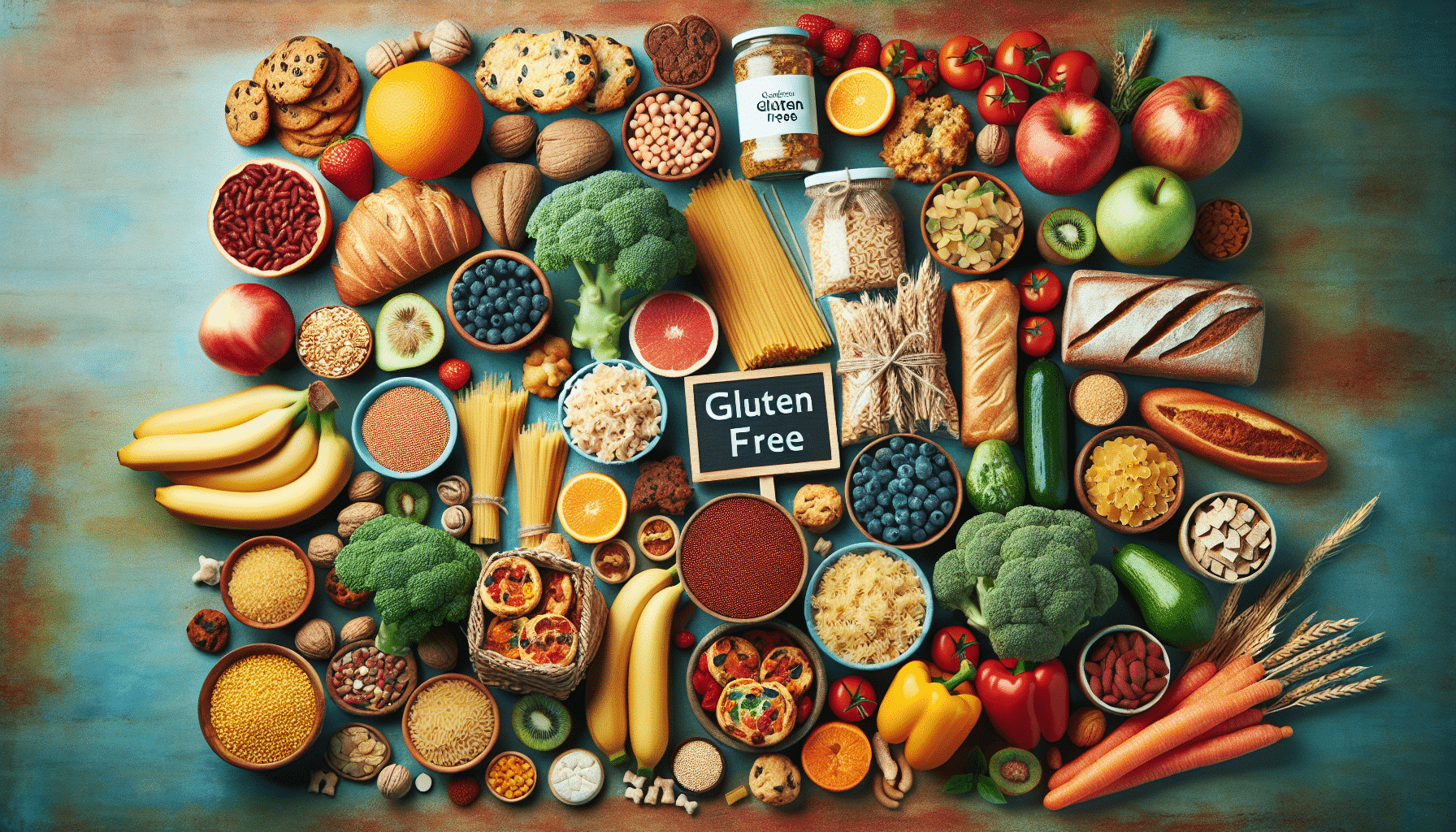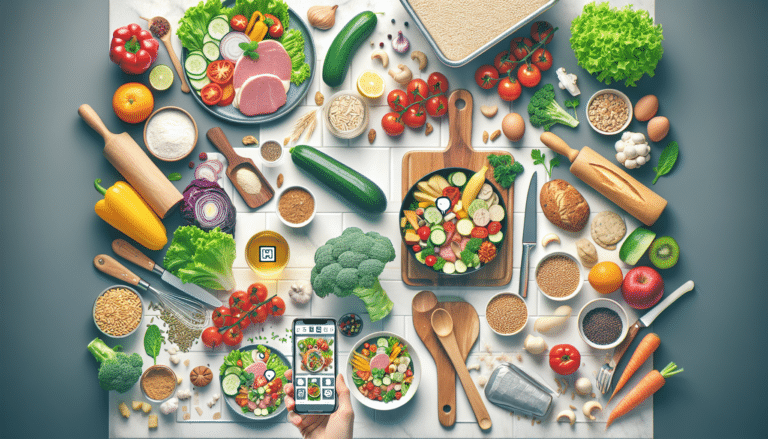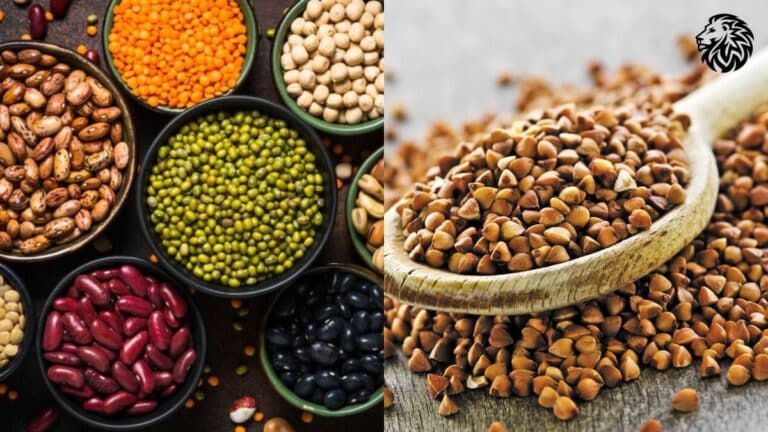Understanding Gluten-Free Diet
Basics of Gluten-Free Eating
Alright, let’s get to the nitty-gritty of a gluten-free lifestyle. It’s all about dodging eats with gluten, that little troublemaker hiding in wheat, barley, rye, and even triticale (Mayo Clinic). Now, if you’re dealing with certain health bumps, skipping gluten isn’t just a choice—it’s a must. But hey, doing it right can make anyone healthier! Stick to whole and unprocessed goodies and you’ll snag all kinds of vitamins and minerals without wrecking your mojo.
Key Gluten-Free Foods
Here’s some yum that never had gluten:
- Fruits and Vegetables: Nature’s candy, gluten-free style!
- Meats and Fish (keep ’em plain, folks)
- Dairy Products (stick to the basics, skip the fancy flavors)
- Nuts and Seeds: No gluten allowed
Want more ideas? Check out our deets on gluten-free snacks and tasty gluten-free baking.
Who Benefits from Gluten-Free Diet
Who’s gonna high-five a gluten-free chow-down?
Celiac Disease
Around 2 million folks in the U.S. have celiac disease, and for them, gluten’s the bad guy that makes the immune system go haywire and mess up the gut (Piedmont Healthcare). People with this can have a rough time with their bellies and beyond. Skipping gluten is like giving your immune system an olive branch—calms the chaos (Verywell Fit).
Non-Celiac Gluten Sensitivity
You might feel all the feels of celiac but without the immune meltdown. For those feeling the pain, ditching gluten is like sunshine on a cloudy day.
Wheat Allergy
If wheat sends you sneezing and wheezing, it’s time to say goodbye to gluten. It’ll save you a trip to EpiPen City.
Prevalence and Awareness
More tests and changes in chow habits mean folks are getting clued up about gluten woes and their buddies. Blood tests, genetic checks, and biopsies are part of the usual detective work to pin down celiac disease (Piedmont Healthcare).
Knowing the bare bones of going gluten-free helps you make smart food choices. Curious to know more about living the gluten-free dream? Check out gluten-free dinner recipes, clever gluten-free meal plans, and sweet gluten-free dessert recipes. Dive in, you savvy eater, you.
Gluten Sensitivity
Understanding gluten sensitivity means figuring out the ways gluten messes with your system. Different conditions live under the gluten sensitivity umbrella, including celiac disease, non-celiac gluten sensitivity, and wheat allergy.
Celiac Disease Overview
Celiac disease is basically your immune system throwing a fit when you eat gluten. It goes after the small intestine lining and ends up messing with villi, those little projections you need for taking in nutrients.
About 2 million folks in the U.S. deal with celiac disease. Getting a handle on it usually involves blood tests, genetic testing, or checking out the small intestine via biopsy. You might run into all sorts of symptoms from stomach troubles like diarrhea and bloating to overall tiredness and achy joints. Sticking to a firm gluten-free diet is the way to keep these in check and stop your gut from getting more beat up.
Non-Celiac Gluten Sensitivity
Non-celiac gluten sensitivity (NCGS) feels a lot like celiac disease but doesn’t actually harm the intestines. You might get bloated or have headaches and bouts of diarrhea, but you won’t test positive for celiac disease antibodies or show any gut damage.
We’re not entirely sure why NCGS happens, but ditching gluten can spell relief. Enjoying tasty gluten-free snacks and meal plans can be the ticket to a more satisfying munching lifestyle minus the discomfort.
Wheat Allergy
A wheat allergy is your body overreacting to any proteins in wheat, not just the gluten part. While common in kids, adults aren’t off the hook. Unlike celiac disease’s autoimmune antics, wheat allergy involves your immune system firing up antibodies against those wheat proteins, sparking allergic reactions.
Symptoms can range from mild annoyances like itching and hives to serious stuff like anaphylaxis. Dodging wheat completely is crucial if you’re allergic. Scanning labels and watching out for cross-contact can go a long way in managing this issue. Opt for gluten-free baking to safely enjoy your baked treats.
| Condition | Symptoms | Diagnosis |
|---|---|---|
| Celiac Disease | Stomach issues, tiredness, skin rash | Bloodwork, genetic testing, biopsy |
| Non-Celiac Gluten Sensitivity | Bloat, stomach troubles, headaches | Based on symptoms, ruling out other things |
| Wheat Allergy | Hives, swelling, severe reactions | Allergy tests, trial and error diet |
Getting the scoop on these various types of gluten sensitivity can steer you towards smarter food choices. Chat with a healthcare pro to figure out the best way to manage those symptoms and boost your health with a gluten-free lifestyle. Check out some gluten-free recipes to find yummy meals that fit your dietary needs.
The Impact of Gluten
Health Conditions Linked to Gluten
Getting to grips with how gluten plays with your body is key to making smart food choices. Several health conditions have their roots in gluten, and they’re not shy about showing it.
Celiac Disease
Celiac disease is a tricky autoimmune situation where munching on gluten spells trouble for your small intestine. About 2 million folks in the U.S. deal with this, figuring it out through blood tests, peeking at genetics, or a tiny intestine snapshot by biopsy. If you’re in this group, dodging gluten isn’t just smart—it’s a must-do.
| Condition | How It’s Spotted | How Many People (US) |
|---|---|---|
| Celiac Disease | Blood tests, Genetic testing, Biopsies | ~2 million |
Non-Celiac Gluten Sensitivity
Non-celiac gluten sensitivity (NCGS) loves to throw a mix of tummy troubles and other random symptoms your way without putting visible dents in your innards. There’s no magic test to tick this off, but skipping gluten usually clears the fog.
Dermatitis Herpetiformis
Dermatitis herpetiformis (DH) makes itself known with an itchy, bumpy rash that’s as unwelcome as a pizza at a health conference. Often, it’s a part-time buddy of celiac disease. The long-term fix? Staying gluten-free.
Gluten Ataxia
Gluten ataxia is that rare friend nobody asked for, where gluten-triggered attacks on your nervous system mess up your coordination. Keeping gluten out of your lineup helps keep things steady and slows down any progression.
Symptoms of Gluten Sensitivity
Spotting the signs of gluten sensitivity can be your first step to feeling better and ditching gluten. These symptoms don’t mess around and show up in a range of surprising ways.
Gastrointestinal Symptoms
- Bloating
- Diarrhea or Constipation
- Tummy Trouble
Your belly throwing a tantrum could point to gluten issues.
Extraintestinal Symptoms
- Feeling Wiped Out
- Head Splitter
- Aching Joints
Even if your gut’s keeping quiet, these are hints that gluten might be the culprit. For lots of people, these troubles ease up when gluten gets the boot.
Neurological Symptoms
- Brain Fog
- Numb Feeling Hands or Feet
- Wobbly Coordination
These brainy symptoms can really upend things, especially with gluten ataxia. Switching to gluten-free chow makes a world of difference.
Knowing how gluten might be tripping you up is just the start. For more tips on living gluten-free, including tasty recipes and meal ideas, swing by our pages on gluten-free recipes and gluten-free meal plans.
Gluten-Free Foods
So, you’ve decided to steer clear of gluten, huh? Welcome to a world where you can still chow down on tons of yummy stuff, just minus the gluten. Let’s talk about what you can munch on, the swaps you can make, and where gluten’s hiding like a sneaky little ninja.
Naturally Gluten-Free Options
Loads of foods naturally don’t have any gluten, so you can dig in without any second-guessing. Here are some goodies you can toss on your plate:
- Fruits and Vegetables: Fresh and naturally free from that pesky gluten.
- Meats and Poultry: As long as they’re unprocessed, you’re good to go.
- Fish and Seafood: Fresh catches are safe, no gluten here.
- Dairy Products: Milk, cheese, and plain yogurt are gluten-free.
- Nuts and Seeds: Just plain nuts and seeds—no sneaky coatings.
- Beans and Legumes: Protein-rich and fiber-friendly without gluten.
Even though some grains usually steer clear of gluten, it’s smart to double-check how they’ve been handled.
| Grain | Gluten-Free Vibe Check |
|---|---|
| Quinoa | You’re safe |
| Rice | You’re safe |
| Buckwheat | You’re safe |
| Amaranth | You’re safe |
| Millet | You’re safe |
| Sorghum | You’re safe |
Make sure any grains have been tested and are under 20 parts per million of gluten, particularly if you’re super sensitive.
Gluten-Free Substitutes
Guess what? You can still enjoy your favorite gluten-tastic eats with some nifty alternatives. Here are some fun swaps for common gluten-laden foods:
| Gluten-Full Food | Gluten-Free Alternative |
|---|---|
| Bread | Grab some gluten-free bread from the freezer section |
| Pasta | Try rice, quinoa, or lentil pasta—equally delish! |
| Crackers | Gluten-free varieties made with alternative flours |
| Baked Goods | Cakes and cookies made from gluten-free flours aren’t off-limits |
With so many gluten-free flours and blends around now, you can whip up sweet (or savory) delights that match your taste buds.
Hidden Gluten Sources
Hold up—gluten could be lurking where you least expect it. Keep your peepers peeled for:
- Soups and Sauces: Wheat often sneaks in there as a thickener. When buying pre-made picks, read those labels!
- Processed Foods: Things like deli meats, flavored snacks, and random condiments might be guilty, so check the ingredients.
- Seasonings and Mixes: Some spice mixes hide gluten, so be sure to give them an extra once-over.
When you’re dining gluten-free, always scan food labels like a hawk to dodge any gluten encounters. Find more tips in our label reading and cross-contamination guide.
Getting to know these gluten-free options and swaps lets you whip up meal plans that’ll keep your taste buds and belly happy. Why not try out some gluten-free recipes to find your new faves?
Gluten-Free Diet Challenges
Switching to a gluten-free diet: sounds healthy, right? Well, it sure can be, but it’s not always a walk in the park. Don’t stress though, once you’re in the know about the tricky bits, keeping your diet in the right lane gets easier, letting you enjoy that healthier you.
Nutritional Considerations
On the gluten-free train, grabbing all the nutrients you need might feel like a chore some days. The grains with gluten, like wheat, barley, and rye, often come packed with goodies like iron, folate, and fiber. So, cutting them out might mean you’re missing some key nutrients.
But don’t worry, here’s a game plan to fill those nutrient gaps: dig into naturally gluten-free foods like:
- Quinoa
- Brown rice
- Buckwheat
- Chia seeds
- Lentils
To lend a hand, here’s a handy table showing what you can find in these nutrient champs:
| Food Item | Iron (mg) | Folate (mcg) | Fiber (g) |
|---|---|---|---|
| Quinoa | 2.8 | 78 | 5.2 |
| Brown Rice | 1.1 | 26 | 3.5 |
| Buckwheat | 1.1 | 14 | 2.5 |
| Chia Seeds | 7.7 | 49 | 10.6 |
| Lentils | 3.3 | 181 | 7.9 |
Feelin’ the struggle to meal plan? Swing by our gluten free meal plans or check out some tasty ideas for lunch and dinner.
Cost of Gluten-Free Living
Going gluten-free might give your wallet a scare. Prices for gluten-free goodies like bread, pasta, and snacks can be hefty. Higher ingredient costs and complex making processes are the usual suspects.
Here’s how to make gluten-free living easier on the budget:
- Stay close to home with naturally gluten-free fruits, veggies, and lean protein.
- Keep an eye out for bulk buys and sales on gluten-free products.
- Whip up meals at home using gluten free recipes instead of snagging pricey pre-made options.
Label Reading and Cross-Contamination
Mastering label reading is your new superpower. “Wheat-free” doesn’t always mean gluten-free since products can still harbor goodies from barley or rye (Celiac Disease Foundation).
Keep these sneaky gluten terms on your radar:
- Barley
- Rye
- Spelt
- Malt
- Brewer’s Yeast
Sneaky gluten can pop up in usual suspects too, like soups and sauces, which might use wheat thickeners (Celiac Disease Foundation). Always dig into ingredient lists like a detective.
Cross-contamination is no joke. Even the tiniest smidgen of gluten can spell trouble for folks with celiac disease or gluten sensitivity. Tips for staying in the safe zone include:
- Grab separate utensils, boards, and pans for gluten adventures.
- Scrub-a-dub kitchen surfaces well after gluten roles.
- Keep your gluten-free eats on different shelves from gluten whisperers.
Wanna get extra savvy? Check out more nitty-gritty details in our other reads on gluten free diet, snacks, and baking.
Health Benefits of Gluten-Free Diet
Going gluten-free isn’t just another trend; it’s a real game-changer if you’re looking to tackle health challenges or just feel better. We’re diving into how ditching gluten can help with managing celiac disease, make life better beyond it, and put your digestive blues to rest.
Managing Celiac Disease
Got celiac disease? Then cutting out gluten is a must, like air and water. This isn’t some choice—your body will thank you. Celiac’s no joke—it’s an autoimmune thing where eating gluten messes with your guts big time. You see, a diet free from gluten helps keep your body from going on the attack spree inside your small intestines, leading to anything from tummy troubles to mood swings (Verywell Fit).
| Symptom | How Gluten-Free Diet Helps |
|---|---|
| Belly Ache | Big-time relief |
| Runs (Diarrhea) | Less often hits ya |
| Feeling Zoned Out | Energy boost, baby! |
About 1 in 100 folks in the U.S. may have celiac, many don’t even know it (WebMD). These folks gotta steer clear of gluten for relief and overall well-being. Need a hand? Peek at our celiac disease diet section.
Symptom Relief Beyond Celiac Disease
Don’t have celiac? Gluten can still be your foe. Some folks get stomach woes, headaches, and tiredness without having full-blown celiac. Going gluten-free can ease these struggles and brighten your day-to-day (Verywell Fit).
Some say skipping gluten may also help keep the spare tire in check and kickstart energy (Mayo Clinic). Wanna try some tasty no-gluten recipes? Take a look at our gluten free recipes page.
Improving Digestive Health
Tired of the belly bloat and gassy nights? A gluten-free diet might be your ticket to better tummy health. It’s especially kind to those wrestling with irritable bowel syndrome or pesky food sensitivities.
Start by loading up on naturally gluten-free goodies like fruits, veggies, lean meats, and milk stuff. Not to forget, munching on gluten free snacks and giving those food labels a good read to dodge hidden gluten makes a world of difference.
A gluten-free lifestyle isn’t just about avoiding some proteins; it’s about feeling awesome, managing health issues like celiac, and bringing a smorgasbord of perks into your life. For meals that are both safe and scrumptious, explore our gluten free lunch recipes.







